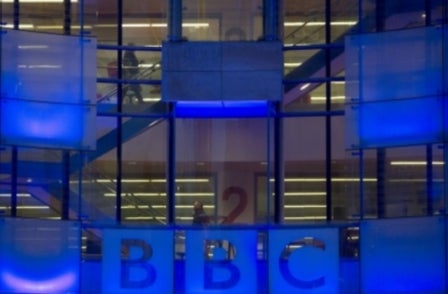
A report from MPs has accused the BBC of helping to keep the public confused about climate change.
Members of the Science and Technology Committee also took the Government to task for failing to communicate climate science effectively enough.
As the leading public service broadcaster, the BBC played a "central" role in keeping people well informed, said the MPs.
But the Corporation "lacked a clear understanding of the information needs of its audience with regards to climate science", the report said.
It appeared to be out of touch with its viewers and listeners, believing they had a good grasp of the issues when evidence suggested the opposite, MPs added.
The report said BBC news teams, including those on Radio 4's flagship Today programme, committed the mistake of attributing the same weight to opinions and scientific fact when covering climate science.
Committee chairman Andrew Miller MP said: "Given the high level of trust the public has in its coverage, it is disappointing that the BBC does not ensure all of its programmes and presenters reflect the actual state of climate science in its output.
"Some editors appear to be particularly poor at determining the level of scientific expertise of contributors in debates, for instance, putting up lobbyists against top scientists as though their arguments on the science carry equal weight."
The report points to evidence that the majority of the public do not have a good understanding of climate change or its causes and many people would like to be better informed.
Yet questioned by committee members, the BBC's head of editorial policy, David Jordan, insisted there was no lack of understanding about climate change among the BBC audience.
The BBC should apply the strict guidelines it follows for politicians when interviewing non-experts on controversial scientific topics, such as climate change, said the report.
The MPs called on the Corporation to develop "clear editorial guidelines" for commentators and presenters, encouraging them to challenge statements from either side of the climate policy debate that stray too far from accepted scientific facts.
A lack of co-ordination between the Government, government agencies and public bodies in relation to communicating climate science was also criticised in the report.
Failing to provide "clear, consistent messages" had a detrimental impact on the public's trust in climate science, said the MPs.
"As a matter of urgency, the Government needs to draw up a climate change communication strategy and implement this consistently across all departments," they concluded.
The MPs also highlighted poor use of the internet and social media by the Government and other bodies such as the Royal Society and Met Office to engage with the public on climate change.
Leo Hickman, chief adviser on climate change at conservation and environment campaign group WWF-UK, said: "This is a timely and important report by the Science and Technology Committee.
"Communicating the science – and the policy implications – of climate change science is a vital but challenging task.
"The BBC is one of the world's most trusted news sources and produces a wide range of superb programming, not least from its award-winning natural history unit.
"We are sure, therefore, that the BBC, which has a unique responsibility as a public service broadcaster, will take on the report's findings in its endless effort to improve and refine its output on climate change."
A BBC spokesman said: "The BBC does its utmost to report on this complex subject as clearly as possible using our specialist journalists.
"While the vast bulk of our interviews are with climate scientists, as part of our commitment to impartiality it is important that dissenting voices are also heard.
"We don't believe in erasing wider viewpoints even if the select committee doesn't agree with them.
"In our response to the Jones report we said we would take care to reflect all viewpoints in the debate about the science and policy giving them due weight – that is what we are doing."
Energy & Climate Change Secretary Ed Davey said: "The Government is already proactive in communicating the science of climate change, using the media, climate scientists and trusted third-party organisations as a medium to do so.
"Monday's extensive coverage of the UN's report on the impacts of climate change is testament to the work of Government in clearly communicating the issue.
"We are continuing to maximise all communications channels, including digital, social media and traditional media whilst refreshing our strategy to help improve how climate change is communicated to the public."
Bob Ward, policy and communications director of the ESRC Centre for Climate Change Economics and Policy at the London School of Economics, said: "I am glad that the committee has explicitly acknowledged our evidence that the public interest is being harmed by inaccurate and misleading coverage of climate change by the BBC and other media.
"While the UK media, including the BBC, has some of the best science and environment correspondents in the world, who provide insightful and factual reporting about climate change, too many editors are willing to publish or broadcast inaccurate and misleading information, seemingly on the grounds that atmospheric physics should be treated as just a matter of opinion."
Email pged@pressgazette.co.uk to point out mistakes, provide story tips or send in a letter for publication on our "Letters Page" blog
